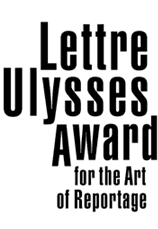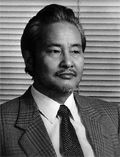
Zhao Xinshan, China

“I write every day, from morning to night. It calms my soul’s need for silence.
People today lack silence, externally and internally.
Shangri-La is a Tibetan word. It means “Paradise,” or “Harmonious Land.”
Shangri-La lies in the area between Tibet and the Province of Yunnan.
Travelling in a valley in the region, I came across a Catholic church, built one hundred years ago by the French. There, the quiet graves of two priests are to be found.
However, the native people of Tibet venerate the God of Nature, or the God within Nature.
This valley is a panorama of possibility. Here, in this last, quiet place in the world, people and nature, people and people, knowledge and belief, live in unity.”
Writer, philosopher, university professor. Zhao Xinshan was born on 2 April 1938 in the South-eastern Chinese province of Jiangxi. From 1955 to 1961, he studied philosophy, German literature, natural sciences and music at the University of Peking. Xinshan then worked for the Chinese Academy of Agricultural Science until 1978, dealing with issues connected to crops, soils, and population.
Xinshan taught comparative philosophy at the Chinese Academy of Social Sciences from 1978 to 1983. He then worked as professor for Comparative Philosophy at the Shanghai Academy of Social Sciences, between 1983 and 1988. He has been teaching philosophy at the Institute for European Research of the Shanghai Academy since 1988. He speaks German and English, as well as Chinese.
Although his works have yet to find a foreign audience, Xinshan has written more than 40 books on a diverse range of topics, including music theory, philosophy, architecture, politics, human development, and poetry. His work Shangri-la as I see it is a volume of literary reportage. His latest book, entitled Genius - Creativity - Madness, is a psycho-analytical study of the works and thinking of several major musicians and intellectuals.
Xinshan has received several research grants to carry out studies in both Japan and Germany. He has been a member of the Advisory Board of the China Writers’ Association since 1994.
Xinshan lives with his family in Shanghai.
